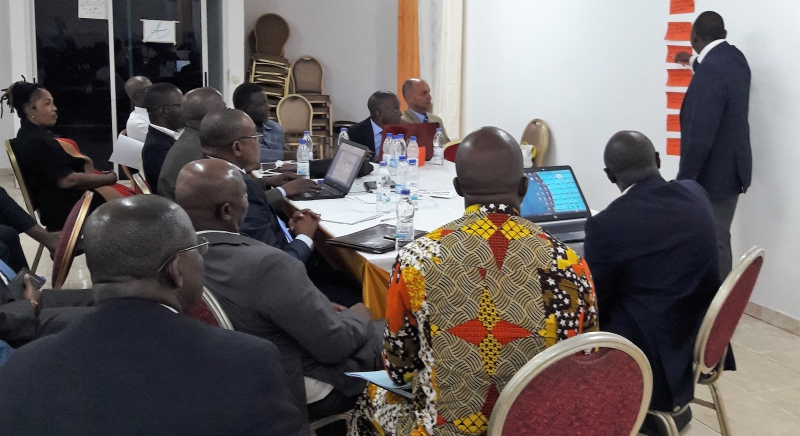Vocational Training in Côte d'Ivoire: Obstacles to Reform Implementation Identified at Last

An article by Traoré Yacouba Diarra, published on the information website @bidj@n.net
Mamadou Touré, Secretary of State for Technical and Vocational Education and Training, is very determined to see the culmination of the technical and vocational education and training sector reform. He reiterated this during the opening of the Identification of obstacles to the Implementation of Reform workshop held in Yamoussoukro from March 13 to 17, 2017, that used a thematic focus-group approach.
After five days of diagnosis, heads of institutes, union members, International Institute for Educational Planning’s (IIEP) Pôle de Dakar representatives and consular chamber and private sector representatives identified 129 obstacles to the implementation of the reform, according to five strategic axes: public-private partnerships, economic demand-driven steering, skills’ endorsement processes, equity and access, and lasting and sustainable sector financing.
For each of these axes, experts feel that public-private partnerships are poorly functional if at all, and insufficiently widespread within the national set-up. They also noted players’ weak capacity to set-up public-private partnerships.
They also noted that vocational education is not sufficiently driven by economic demand, all the more so because the mechanism to appraise training demand is not adequately developed and competency-based approaches are not widespread.
What’s more, the supply of vocational training is not equitable in its geographic spread or for low-income individuals. It is imbalanced in terms of sectors and location. “We are a country with an agricultural reputation: production, transformation and commercialization. This is a contradiction. There is one area today, solar energy. There are no training institutes in this area. This is a pond to absorb young graduates.” Explained Thierry Kouamé, Technical Advisor to the Secretary of State.
According to him, budgets allocated to vocational education are insignificant, representing 6 percent of the education and training sector budget. To ensure vocational education financing is lasting and sustainable, he would like the informal sector’s funding potential to be harnessed, and for Regional and District Councils and civil society to contribute.
Alexis Ahonzo, Cabinet Director (Dircab), representing Mamadou Touré, underlined three salient aspects of the workshop:
- Firstly, the main obstacles to the implementation of the reform and those responsible for lifting them were identified, to enable the effective launch of the reform’s implementation.
- Next, the State Secretariat, the technical ministries involved, the private sector and the consular chambers and other players gained a better understanding of their roles and responsibilities in the implementation of the reform, according to a synergetic approach.
- Finally, the members of the reform steering and implementation bodies were endowed with better tools for its operationalization.
“I am convinced that this reform, if properly led and in the framework of the ambitious compulsory schooling programme, will greatly contribute to the employability of vocational education trainees, by aligning their training with the needs and structure of the Ivorian economy, the high competitivity of the productive sector” concluded Cabinet Director Alexis Ahonzo.

